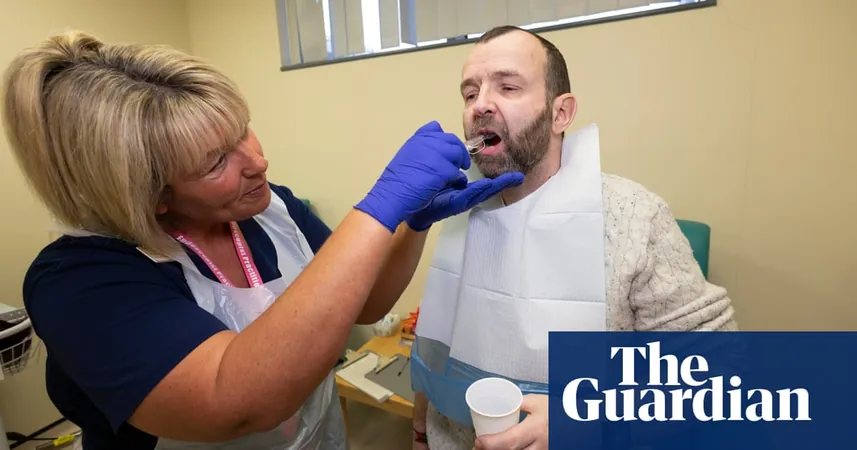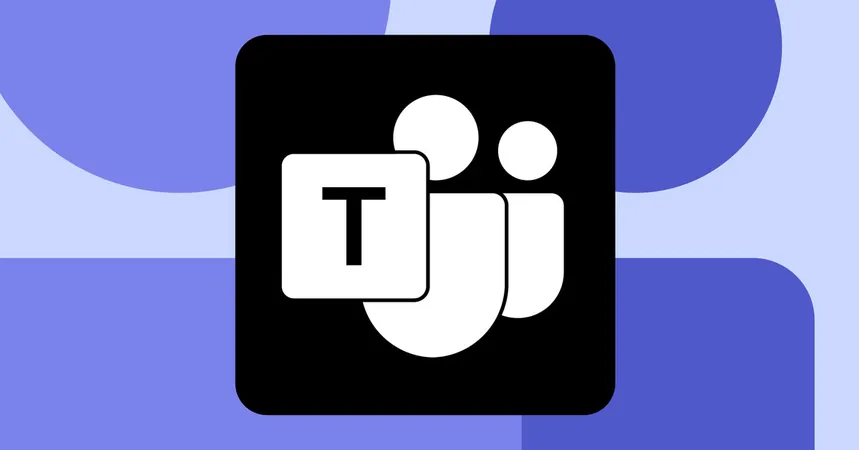
Revolutionary ‘Sponge on a String’ Test Set to Transform Oesophageal Cancer Screening
2024-11-28
Author: Li
Introduction to the Sponge on a String Test
In a groundbreaking move, the NHS is initiating a trial of the innovative 10-minute 'sponge on a string' test among 120,000 patients suffering from heartburn. This initiative aims to evaluate the test’s potential for widespread use in screening millions for oesophageal cancer, one of the deadliest forms of cancer globally.
How the Test Works
Patients will ingest a soluble capsule attached to a string, which, when consumed with water, releases a sponge roughly the size of a 50p coin. As the sponge is pulled back through the oesophagus, it gathers cells that will later be analyzed for Barrett’s oesophagus, a condition that significantly increases the risk of developing oesophageal cancer.
Rising Incidence of Oesophageal Cancer
The incidence of oesophageal cancer – a malignancy affecting the food pipe – is rising, primarily due to lifestyle factors such as poor diet, smoking, excessive alcohol consumption, and conditions like hiatus hernia. With previous trials demonstrating the sponge test's effectiveness in identifying Barrett’s oesophagus, doctors and scientists have now embarked on the Best4 trial in England, expected to expand throughout the UK. This study seeks to establish whether targeted screening can prevent the onset of oesophageal cancer and ultimately save lives.
Advantages of the Sponge Test
What sets the 'sponge on a string' test apart is its simplicity and cost-effectiveness. Compared to the traditional, invasive endoscopy (the gold standard method for diagnosis), this new test is less invasive, significantly quicker, and approximately £300 cheaper per procedure for the NHS. The hope is that widespread adoption of this test will lead to earlier detection of oesophageal cancer, consequently reducing the need for chemotherapy or surgeries that involve the removal of the oesophagus.
Details of the Best4 Trial
The Best4 screening trial is being celebrated as the culmination of years of meticulous research. Over the course of the next three years, starting with its first participants who commenced the trial recently, 120,000 patients will take part across the UK.
Participation and Invitation
Individuals on regular heartburn medication will receive invitations to participate via text message from the NHS.
Expert Opinions
Prof. Rebecca Fitzgerald, who invented the sponge test and is a co-principal investigator of the Best4 trial at the University of Cambridge, expressed optimism about the innovation. "This capsule sponge is revolutionizing the detection of Barrett’s oesophagus and oesophageal cancer. Early detection can save lives and minimize the need for aggressive treatment."
The Testing Process
Participants will visit specially-equipped mobile units to undergo the brief sponge test. After swallowing the coated pill, the sponge will be released and pulled back through the digestive tract, collecting essential cells that will be analyzed for cancer risk indicators.
Broader Implications of the Trial
With previous trials demonstrating the sponge test’s benefits, we are now ready to expand access to anyone burdened by heartburn, Fitzgerald added.
Funding and Future Prospects
Backed by £6.4 million in funding from Cancer Research UK and the National Institute for Health and Care Research, the trial's results could pave the way for a revolutionary screening program that may be offered across the entire UK.
Statements from Cancer Research UK
Michelle Mitchell, Chief Executive of Cancer Research UK, hailed the test as one of the "most exciting early-detection tools" to emerge in recent years, stating, "After decades of research, we’re on the brink of a transformative leap in how we diagnose oesophageal cancer."
Conclusion
With such promising advancements on the horizon, could this test be the key to curtailing the rising tide of oesophageal cancer? Stay tuned for updates on this potential game-changer in cancer screenings!


 Brasil (PT)
Brasil (PT)
 Canada (EN)
Canada (EN)
 Chile (ES)
Chile (ES)
 España (ES)
España (ES)
 France (FR)
France (FR)
 Hong Kong (EN)
Hong Kong (EN)
 Italia (IT)
Italia (IT)
 日本 (JA)
日本 (JA)
 Magyarország (HU)
Magyarország (HU)
 Norge (NO)
Norge (NO)
 Polska (PL)
Polska (PL)
 Schweiz (DE)
Schweiz (DE)
 Singapore (EN)
Singapore (EN)
 Sverige (SV)
Sverige (SV)
 Suomi (FI)
Suomi (FI)
 Türkiye (TR)
Türkiye (TR)